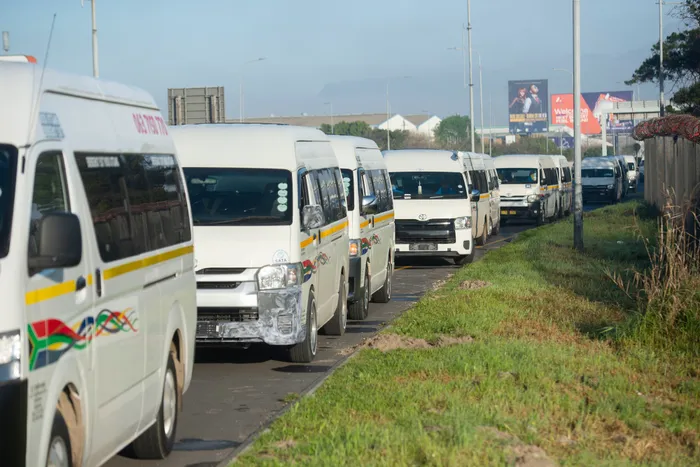
One of South Africa’s most lucrative industries, the taxi sector, worth an estimated R100 billion a year, is reportedly operating almost entirely tax-free, thanks to a long-standing loophole in the country’s tax system.
Image: Armand Hough / Independent Newspapers
One of South Africa’s most lucrative industries, the taxi industry, worth an estimated R100 billion a year, is reportedly operating almost entirely tax-free, thanks to a long-standing loophole in the country’s tax system.
This is according to the Organisation Undoing Tax Abuse (OUTA) and the Democratic Alliance (DA), who claim that the vast majority of taxi operators do not pay corporate tax, VAT, or payroll taxes, despite the size of the industry.
According to reports, this is largely due to the informal and cash-based nature of the sector. Most taxi fares are paid in cash, and operators rarely issue receipts or keep formal financial records.
“Broaden the tax base. So, we’ve got a lot of informal industries and the taxi industry that is not within the tax base. If you just go and start doing that, start slowly, we should be able to get R2 billion a year, build that up to about R9 billion per annum going forward," OUTA CEO Wayne Duvenage in an interview with the SABC earlier this year.
"It’s not to punish the taxi industry, it’s to say you are formalised, you are businesses, you need to be brought into the net. There’s no reason why an industry like the taxi industry should not be taxed.”
IOL previously reported that the South African National Taxi Council (SANTACO) has labelled claims that the taxi industry does not pay tax as "misguided and shallow", saying that most operators comply by paying personal income tax individually.
"The perception is misguided and shallow. The taxi industry, in the main, is comprised of operators who run their businesses as sole proprietors. This means they operate their businesses as individuals and continue to be taxed as individuals,” SANTACO spokesperson Mmatshikhidi Rebecca Phala told IOL.
"To prove this, they are issued tax clearance certificates by SARS, which they use for varied reasons, including in their applications and their renewals of the operating licenses, where the provision of said tax clearance is a prerequisite."
She added that the current tax framework does not fully accommodate the informal nature of the industry, and called for reforms.
"As such, currently, a large scale of the taxi industry does not participate in the greater companies' tax regime. The current structure of the tax reform needs to be relooked to ensure a speedy resolution of this taxation loophole".
"The taxi industry shouldn’t be perceived as similar to a public company; it is an individualised business whose operators have organised themselves into taxi associations".
IOL Business
mthobisi.nozulela@iol.co.za
Related Topics: